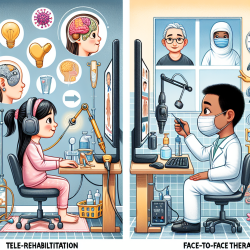Autism Spectrum Disorder (ASD) presents unique challenges in various aspects of life, one of which is nutrition. Recent research titled "Exploring Eating and Nutritional Challenges for Children with Autism Spectrum Disorder: Parents’ and Special Educators’ Perceptions" sheds light on the critical issues surrounding the dietary habits of children with ASD. This blog aims to translate these research findings into actionable strategies for practitioners, ultimately improving nutritional outcomes for children with ASD.
Key Findings from the Research
The study involved semi-structured focus group discussions with 20 participants, including parents and special educators. The primary themes identified were:
- Lack of Knowledge and Adherence to Dietary Guidelines: Both parents and educators exhibited limited understanding of proper dietary guidelines, specifically tailored for children with ASD.
- Age-Related Challenges: Introducing new foods becomes increasingly difficult as children age, primarily due to sensory issues and established food preferences.
- Food Selectivity: Sensory sensitivities to texture, color, and smell significantly impact food acceptance, leading to a limited food repertoire.
- Oral Health Issues: Poor oral health, often exacerbated by sensory issues, further complicates nutritional intake.
- Parental Perception: Parents often misjudge their child's nutritional status, believing it to be adequate despite evidence of malnutrition.
- Need for a Nutrition Module: There is a strong demand for a comprehensive nutrition education module tailored to the needs of children with ASD.
Actionable Strategies for Practitioners
Based on these findings, here are several strategies that practitioners can implement:
- Educate and Empower: Develop and disseminate easy-to-understand nutritional guidelines tailored for children with ASD. Utilize various media platforms to reach a broader audience.
- Individualized Approaches: Customize dietary plans based on each child's sensory preferences and age-related challenges. Gradual introduction of new foods can be facilitated through food chaining and peer influence.
- Focus on Oral Health: Collaborate with dental professionals to address oral health issues, ensuring they do not hinder nutritional intake.
- Parental Involvement: Engage parents in the nutritional planning process, providing them with resources and support to better understand and manage their child's dietary needs.
- Develop Comprehensive Modules: Advocate for the creation of a nutrition education module that includes meal planning, recipes, and strategies for overcoming common challenges faced by children with ASD.
Encouraging Further Research
While the current research provides valuable insights, there is always room for further exploration. Practitioners are encouraged to stay updated with the latest research and continuously adapt their strategies to ensure the best outcomes for children with ASD.
To read the original research paper, please follow this link: Exploring Eating and Nutritional Challenges for Children with Autism Spectrum Disorder: Parents’ and Special Educators’ Perceptions.










